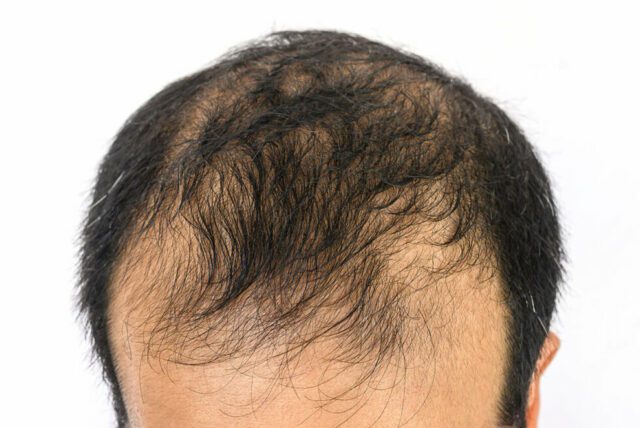Early Signs of Balding and What You Can Do
Hair loss is a common concern for both men and women, but the question “Why am I balding?” can still be distressing as part the early signs of baldness. Balding often happens gradually, and recognising the early signs is key to addressing the issue before it progresses. While hair loss can be influenced by a range of factors including genetics, hormones, and lifestyle, identifying the warning signs early on can help you take proactive steps to manage and treat it effectively.
Early Signs of Balding
Here are some telltale signs that you might be experiencing hair loss:
- Receding Hairline: One of the most noticeable early signs of balding is a receding hairline. For men, this often begins at the temples, creating an “M” shape, while for women, it may manifest as thinning around the forehead. If you notice your hairline slowly retreating, it could be a sign that you’re starting to lose hair.
- Thinning Crown: Another common sign is thinning on the crown of the head. This area, often referred to as the “vertex,” may start to show more scalp, and you might notice a bald spot developing. Both men and women can experience this type of hair loss, although it’s more prevalent in men.
- Excessive Hair Shedding: Finding more hair than usual in your hairbrush, on your pillow, or in the shower can be a red flag. While it’s normal to lose some hair daily, a noticeable increase in shedding could indicate that you’re losing hair faster than it’s being replaced.
- Wider Part: For women, one of the early signs of hair thinning is a widening part line. If you notice that your part is becoming more pronounced or that more scalp is visible when styling your hair, it may be an indication of diffuse thinning.
- Scalp Visibility: Increased visibility of your scalp through your hair, particularly in areas that were once fuller, is another sign of thinning hair. If you’re starting to see more of your scalp in natural light or in photos, this could be a sign that your hair is thinning overall.
- Family History: Genetics plays a significant role in hair loss. If you have a family history of male or female pattern baldness, your chances of experiencing hair loss are higher. Look at your parents, grandparents, and siblings to gauge your risk.
- Slow Hair Growth: If you notice that your hair is growing more slowly or not at all in certain areas, this could be a sign of androgenetic alopecia, a common type of hair loss in both men and women. Hair might become thinner and shorter with each growth cycle.
- Changes in Hair Texture: Hair that is becoming finer and weaker over time can also be a sign of hair loss. Women, particularly those going through menopause, may notice changes in their hair’s texture, making it feel less dense and more prone to breakage.
What You Can Do
If you’re noticing any of these signs, it’s important to take action early. A professional scalp and hair follicle analysis can provide valuable insights into the health of your hair and scalp, helping to determine if you’re at risk for balding. This analysis can identify the underlying causes of your hair loss and guide you toward appropriate treatments.
How UK Hair Transplants (UKHT) Can Help
At UK Hair Transplants (UKHT), we offer comprehensive hair and scalp assessments to determine the extent of hair loss and provide personalized treatment plans. Our expert team uses advanced techniques like Follicular Unit Extraction (FUE) and Platelet-Rich Plasma (PRP) therapy to address hair loss effectively.
Whether you’re in the early stages of hair thinning or experiencing more significant hair loss, UKHT provides a range of solutions to help restore your hair and confidence. Don’t wait until it’s too late—early intervention is key to maintaining a fuller, healthier head of hair. Contact UKHT today to schedule your consultation and take the first step towards regaining control of your hair’s future.
Book Free Consultations and Advice
We at UK Hair Transplants (UKHT) offer free consultation and advice on how you can recognise early signs of baldness and are happy to recommend any treatment to prevent or slow down baldness. Call us today.







